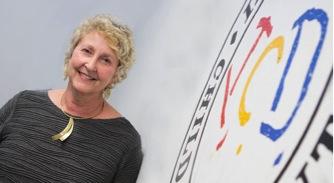
Listening, building trust is key to UROC’s Trauma Recovery Project

Insightful conversation is known for sparking positive change. So it seems fitting that the Trauma Recovery Project, launched last spring by the University of Minnesota Urban Research and Outreach-Engagement Center (UROC), hinges on conversations with North Minneapolis residents and faith leaders, community-based professionals and University scholars.
Topics being discussed by the participating workgroups include individual and community trauma, faith and healing, and the goal is to create a strategy for creating positive change in the lives of families and the Northside community as a whole. Topping the list of project priorities is the need to better understand how trauma affects children and find ways to reduce and prevent childhood trauma.
Megan Gunnar, director of the University’s Institute of Child Development is one of several researchers in the University scholar workgroup. Like the others, Gunnar’s work is focused on children and families, but she has long been particularly interested in studying how stress in early life affects brain and behavioral development.
While the expertise that she and her colleagues bring to the project may be helpful at some point, Gunnar is glad that for now the emphasis is on talking, listening and building trust. “There is a long history between the University and the Northside where researchers are seen as taking more than they have given back to the community,” she explains. “If we’re going to work together, we have to overcome the past and rebuild trust by making clear why we are there and what we have to offer.”
Even in the absence of a complicated history, Gunnar understands that parents get concerned when researchers say that they want to study children. “People of course wonder what our research is all about, but once they come in and work with us they realize it’s actually a lot of fun,” she says. “From the kids’ standpoint, it just seems like we’ve invited them to come in and play some games.”
Information gleaned from this kind of research can be helpful in wide-ranging ways. One of the many things Gunnar is interested in studying is whether or not our expectations for child development are on target. Because research is commonly conducted with well-educated children of upper-middle-class parents, she thinks it’s possible that what we think is typical of children at particular ages, may not be typical at all. “Information about what children can do at different ages has a huge effect on parents, so if we’re saying something is typical, it had better be typical and you can’t say that if you haven’t studied representative samples of the population,” she says.
For now, though, research is not at the forefront of the project and it may never be. Once all of the workgroups have met individually, they will bring their issues forward in broader conversations between the groups. When the community is ready to talk, Gunnar and her colleagues will be ready to listen. “We don’t know what they’re going to ask for or need at this point,” she says. “But we’re definitely not going to go in and just say, ‘Here’s what we’re going to do.’ It’s our job to be a responsive partner, so we’ll be following the community’s lead.”